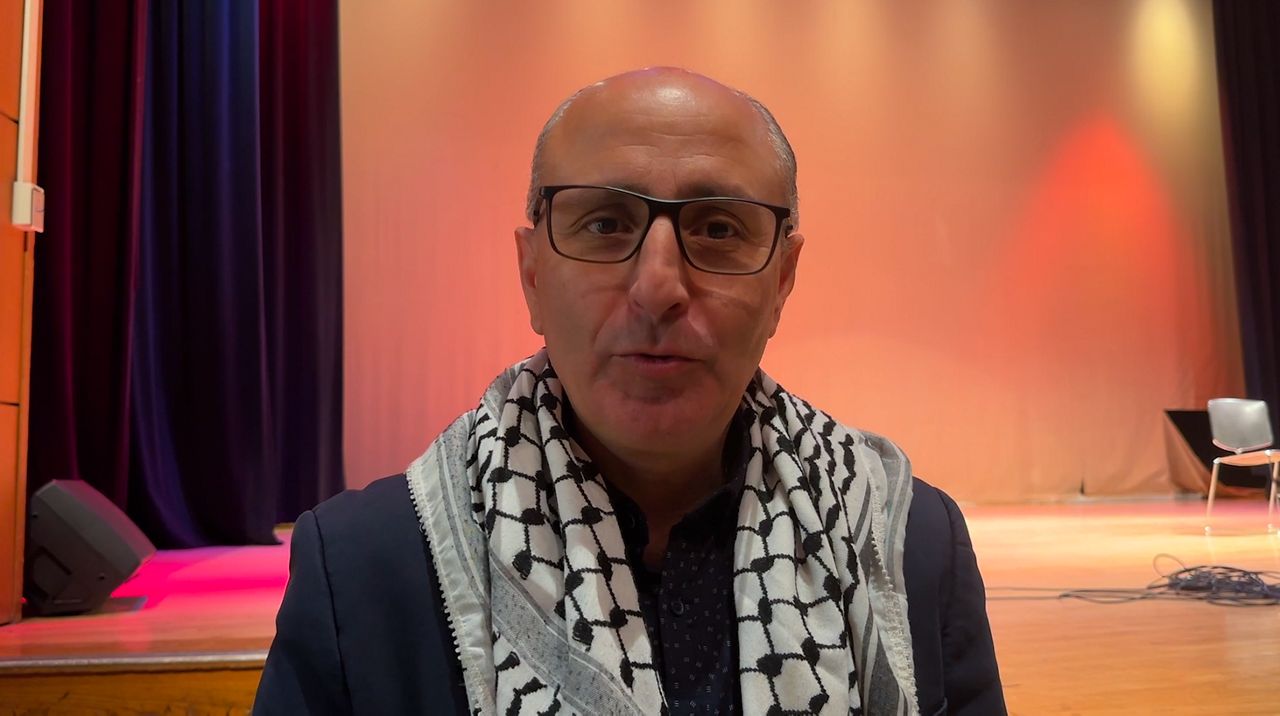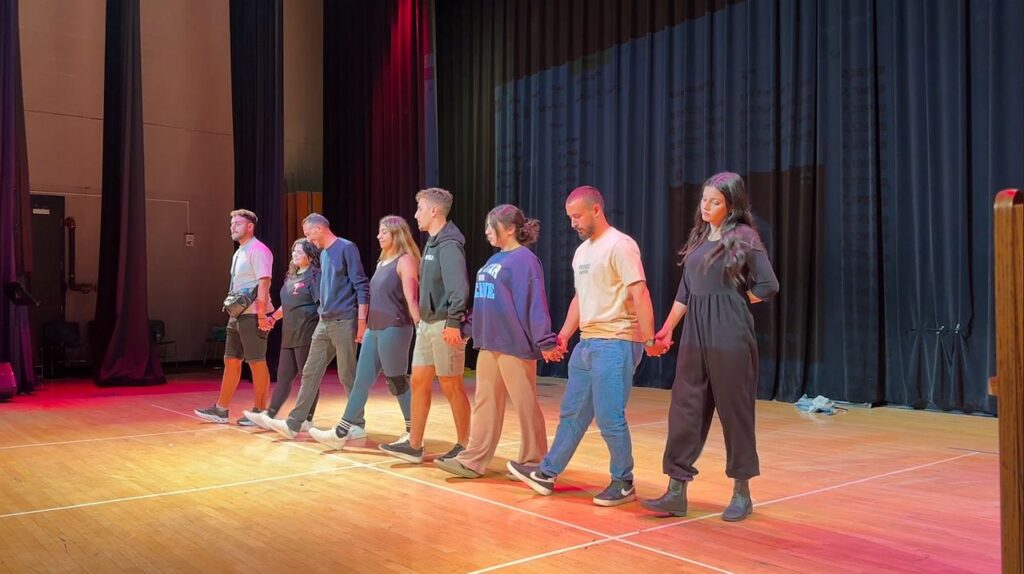CLEVELAND — Two Palestinian dance groups are showcasing their heritage, performing for dozens of people at Cleveland State University this weekend.
The Cleveland Palestine Advocacy Community and the U.S. Palestine Community Network are leading an event featuring a folkloric dance known as Dabke. Shereen Naser and her family are from town of Birzeit in the West Bank. She said the dance has deep roots in Palestinian history.
“It’s a tradition that is a connection to land that’s been around for centuries and centuries, and we still carry it with us today,” Naser said. “Teaching it from our elders to our young people again, performing at weddings and protests as a symbol that we are here.”
Voltaire Kharoufeh is leading the Wishah and Baladi dance troupes, which he said have performed around the globe for the last 34 years.

Kharoufeh said the dance troupes unites Palestinian people of Christian and Muslim faith. (Spectrum News 1/Tanya Velazquez)
The Palestinian dance troupes are typically composed of 30 members, Kharoufeh said, but this weekend only eight dancers were allowed into the country under the current visa ban.
“Some of them have been getting visa from before, so it was easy, but unfortunately, we had the maybe the same size—or over that—who couldn’t get their visa in order to come here with us,” he said.
The Trump administration has upped its restrictions on those coming to the United States from Palestine, making it more difficult to receive travel documents for those coming to visit for business, pleasure or educational purposes.
The U.S. State Department also suspended a program allowing injured Palestinian children grom Gaza to come to the country for medical treatment.
“So, these children have lost limbs because of building falling on them or being shot by Israeli solders, and they were allowed to come for medical treatment, lifesaving medical treatment,” Naser said. “And these visas are keeping them from being able to receive that treatment.”
The new restrictions on visas are impacting people beyond the Gaza strip, said Loay Odeh, who is a member of USPCN.
“Mahmoud Abbas, the president of Palestine right now, who couldn’t get even a visa to come to the to the United Nations,” he said.
The visa ban is only one of several pressing issues the community faces as they continue to fight for liberation, Odeh said.
“Every once in a while, we need to be happy [and] to be joined with our culture,” Odeh said. “To be happy, just for maybe two hours, because we’re always crying about our people dying.”
In spite of their struggles, Naser said she hopes the event fosters unity among all attendees.
“I hope that people who come to see this performance – especially if they’re not Palestinian – get to see again our joy, our culture, our traditions,” Naser said. “Instead of just seeing us as worthy of being bombed.”

